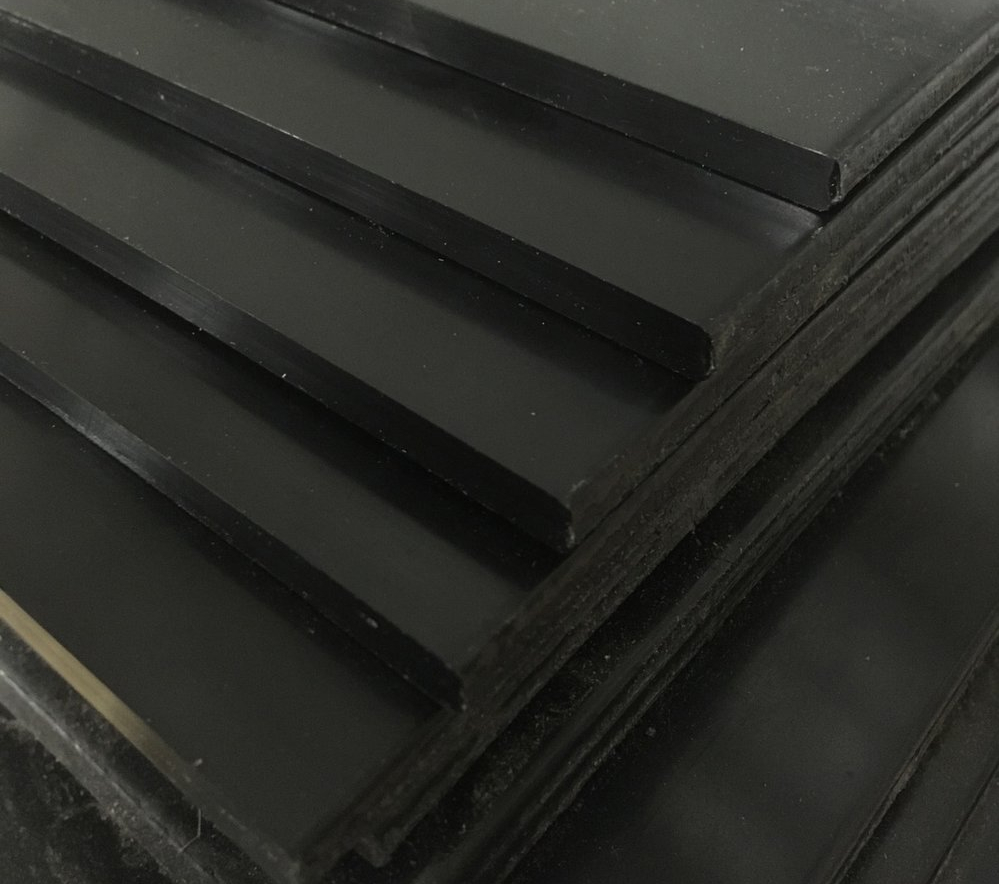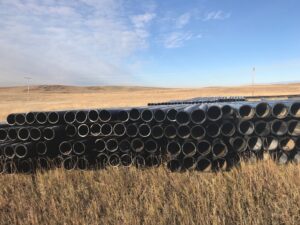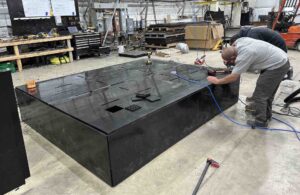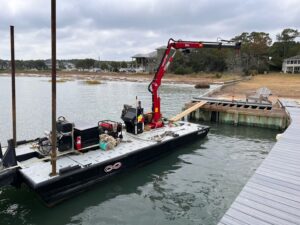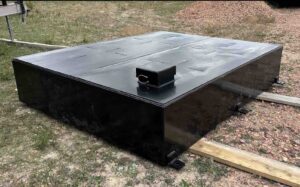Mechanical Properties of HDPE Material
- Tensile Strength: HDPE can withstand considerable force, with a typical tensile strength of around 25 MPa. This property ensures that material can handle tension without breaking.
- Elongation at Yield: With an elongation rate of about 9% at yield, it offers flexibility under stress.
- Modulus of Elasticity: The modulus of elasticity in tension stands at approximately 1000 MPa. This one indicates that HDPE is able to deform under tensile stress.
Thermal Properties
- Glass Transition Temperature: It has a low glass transition temperature of around -95°C, which helps it remain flexible under extremely cold conditions.
- Melting Point: The material softens around 130°C, useful in thermal forming processes.
- Service Temperature: It is effective within a service temperature range of -30 to 90°C, works well in various climates.
Electrical Properties
HDPE also offers excellent insulation properties, which makes it suitable for electrical applications:
- Dielectric Strength: With a dielectric strength of 50 kV/mm, HDPE can resist high voltages, making it ideal for insulating electrical components.
Other Relevant Properties
- Impact Resistance: HDPE’s resilience is highlighted by its high impact strength, ensuring durability against mechanical shocks.
- Water Absorption: It exhibits minimal water absorption (<0.05%), which prevents swelling and maintains integrity in moist environments.
- Chemical Resistance: The material is resistant to most acids, alcohols, and bases, making it suitable for containers and pipework in chemical processing.
Below is a table summarizing some of the typical properties of HDPE:
| Property | Unit | Value |
|---|---|---|
| Tensile Strength | MPa | 25 |
| Elongation at Yield | % | 9 |
| Modulus of Elasticity in Tension | MPa | 1000 |
| Glass Transition Temperature | °C | -95 |
| Melting Point | °C | 130 |
| Service Temperature | °C | -30 to 90 |
| Dielectric Strength | kV/mm | 50 |
| Water Absorption | % | <0.05 |
Get in Touch With Legacy HDPE
HDPE’s extensive range of properties can be tailored to meet specific needs, which maks it a highly adaptable solution for a myriad of challenges. Whether in consumer goods, industrial applications, or infrastructure projects, HDPE continues to be a dependable choice for engineers and designers alike.
If you are looking for high-quality solutions tailored to the specific requirements of your HDPE boat production, contact Legacy HDPE. We prioritize quality and customer satisfaction, ensuring durability, efficiency, and cost-effectiveness. For more information about our products and services, please contact us directly at Tel: 307-299-3049.

